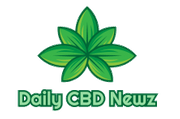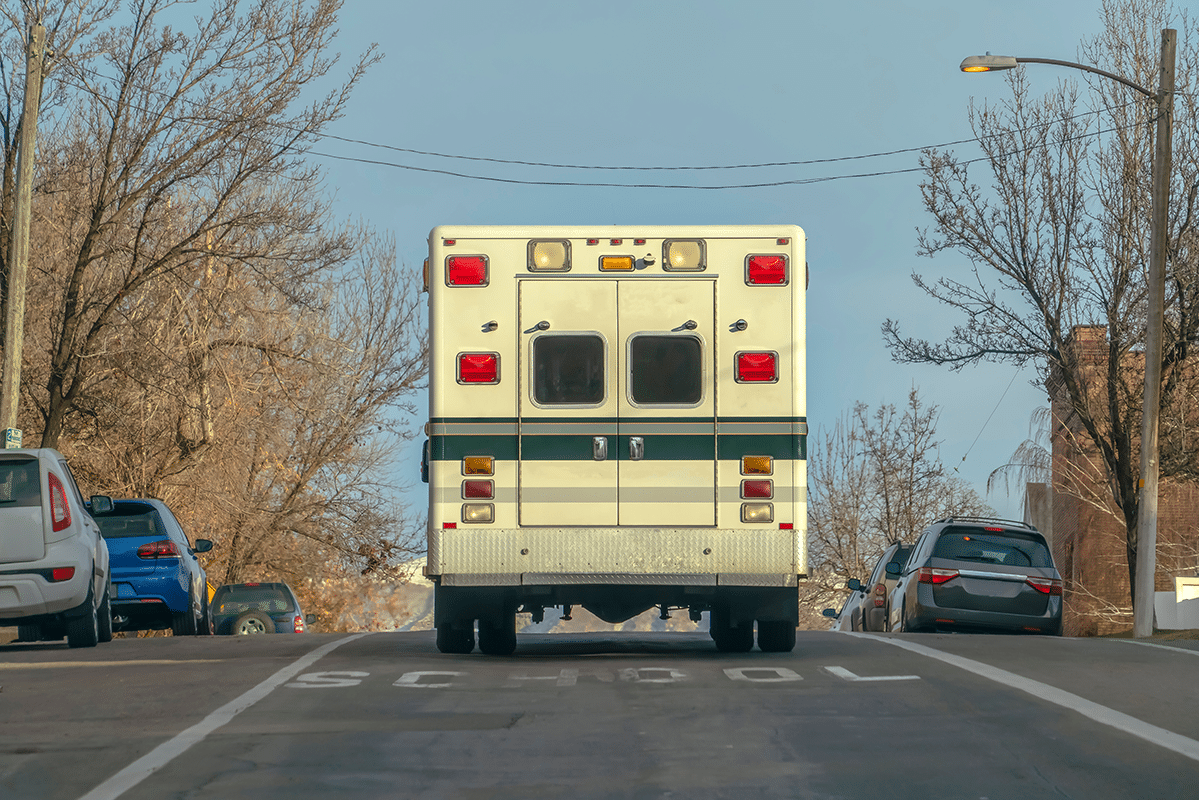The legalization of hemp-derived cannabinoids by the 2018 Farm Bill has designed a yawning regulatory hole that is remaining avidly exploited by purveyors of sketchy vape goods and superior-potency edibles.
That is the rivalry of a “white paper” report recently issued by the California Cannabis Sector Affiliation (CCIA), a leading cannabis sector trade business, which warned that the poorly written regulation inadvertently opened a “Pandora’s box” of unregulated intoxicating compounds that threaten general public health. At difficulty are psychoactive cannabinoids other than cannabis-derived Delta-9 THC.
It was legalizing cannabidiol (CBD), a non-intoxicating compound with numerous salubrious houses, that lawmakers experienced in mind when they crafted the Farm Invoice. But other intoxicating cannabinoids ostensibly derived from hemp — which includes Delta-8 THC and quite a few powerful artificial THC analogs that really do not exist in mother nature — are getting brazenly bought coastline to coastline without the need of regulatory oversight, according to the white paper, which was composed by CCIA vice president Tiffany Devitt.
Entitled “Pandora’s Box: The Potential risks of a Countrywide, Unregulated, Hemp-Derived Intoxicating Cannabinoid Marketplace,” it states: “Rife with contaminants and chemical byproducts, several of these so-named hemp THC and THC-like solutions are bought online and in usefulness suppliers, gas stations, and smoke outlets with out age-gates, testing benchmarks, packaging and labeling prerequisites, marketing limits, or even a correct knowing of their possible results on buyers. It is a public wellbeing disaster.”
Did the Ninth Circuit Get It Mistaken — Or Did Congress?
Devitt warns that the loopholes in the 2018 Farm Monthly bill were legitimized by a the latest ruling of the US Ninth Circuit Court of Appeals in San Francisco, which has “unleashed a Wild West of intoxicants.”
On May perhaps 19, 2022, a 3-choose panel of the Ninth Circuit turned down arguments that Delta-8 merchandise that are chemically synthesized from hemp-derived CBD fall outdoors the scope of the Farm Bill. In AK Futures LLC v. Boyd St. Distro, LLC, the panel upheld a Southern California district court’s grant of a preliminary injunction in favor of AK Futures, a producer of vaping items, in a trademark infringement motion in opposition to rival Boyd Street Distro. The Ninth Circuit turned down Boyd’s competition that AK Futures could not maintain a valid trademark for its products due to the fact federal legislation forbids possession and sale of Delta-8 THC.
Said the choice: “Regardless of the knowledge of legalizing delta-8 THC solutions, this Court docket will not substitute its individual plan judgment for that of Congress. If Boyd Avenue is correct, and Congress inadvertently developed a loophole legalizing vaping merchandise made up of delta-8 THC, then it is for Congress to resolve its slip-up.”
The determination included: “[T]he resource of the solution — not the process of manufacture — is the dispositive issue for ascertaining no matter whether a item is synthetic.”
The Ninth Circuit also found that “the only statutory metric for distinguishing controlled marijuana from lawful hemp is the delta-9 THC focus degree.” Which is a reference to the .3% Delta-9 THC conventional proven as a most for legal hemp under the Farm Bill.
In her white paper, Devitt indicates that the Ninth Circuit erred, stating that the ruling is “at odds with other federal statutes this sort of as the Federal Analogue Act, which explicitly prohibits THC analogs. Approval of novel cannabinoids … rightfully falls beneath the purview of the US Food items and Drug Administration.”
Devitt agrees with the Ninth Circuit panel that further Congressional action is mandated. She writes: “All vegetation grown for cannabinoid information ought to be subject matter to a equivalent set of regulations relatively than an arbitrary, unworkable THC threshold. Absent a single federally controlled cannabinoid market place that oversees each hemp and hashish, the 2018 Farm Monthly bill urgently demands to be amended to close the loophole allowing the unregulated sale of concentrated, intoxicating, and/or synthesized cannabinoids.”
Devitt adds: “The best alternative is a one, federally regulatory framework that oversees both equally hemp- and cannabis-derived cannabinoid items for human intake.”

Basic safety Considerations
A number of peer-reviewed experiments and cannabis industry researchers lend credence to the fears expressed in the CCIA white paper. A few illustrations:
- An October 2022 report by College of Missouri researchers uncovered “several impurities in concentrations much over and above what is declared on certificates of analysis” for ten popular Delta-8 THC products.
- Also in Oct 2022, the journal Cannabis & Cannabinoid Investigation released a report entitled “The Darkish Side of Cannabidiol,” which noticed a website link among the absolutely free-for-all environment and situations of E-cigarette or Vaping Use-Affiliated Lung Personal injury (EVALI). It concluded: “Quality command is completely inadequate in the freshly rising Δ8–THC business. American individuals are ingesting products and solutions that are mislabeled with lots of compounds that have never ever gained any toxicological testing. EVALI cases keep on to be documented with a fatality rate approaching 2% (in California).”
- A modern examine revealed by PLoS A person, entitled “The inverse affiliation of point out cannabis vaping prevalence with the e-cigarette or vaping item-use linked lung harm,” observed that the vaping disaster was even worse in states without the need of authorized hashish use. This speaks to the simple fact that basic safety challenges are even worse exactly where authorized hashish is not out there and intoxicating hemp items are widespread.
- And a January 2022 review in Chemical Investigate in Toxicology, revealed by the American Chemical Culture, was entitled “Novel Δ8-Tetrahydrocannabinol Vaporizers Consist of Unlabeled Adulterants, Unintended Byproducts of Chemical Synthesis, and Hefty Metals.” The title speaks for itself.
“I proceed to be unhappy and dismayed by the deficiency of problem for the distribution of contaminated artificial cannabis derivatives into the customer marketplace,” Christopher Hudalla, founder of Proverde Labs, advised The Hashish Scientist. “After tests hundreds of products primarily based on artificial isomerizartion procedures, 100 % of the samples we have examined contained significant amounts of residual artificial reagents and/or synthetic byproducts, most of which do not exist in nature and, as these, have no shown basic safety profile.”
To make issues worse, in accordance to Hudalla: “Most analytical laboratories that are furnishing testing for these solutions are disregarding the existence of these unfamiliar compounds and do not report their presence on the resulting Certificates of Analysis… Rather these contaminated products keep on to be dispersed without oversight, placing consumer’s overall health and basic safety at risk … all for the sake of maximizing revenue. I simply cannot picture a different authentic business that would be permitted to function with these irresponsibility.”
How Did We Get into This Mess?
Cannabis prohibition is codified by the 1970 Controlled Substances Act (CSA), a legislative travesty that defines “marihuana” as “all elements of the plant Cannabis sativa L” as nicely as “the resin extracted from any portion of these types of plant and each and every compound, manufacture, salt, derivative, mixture, or planning of such plant, its seeds or resin.” Excluded from the definition are experienced stalks, fiber, sterilized seeds, and merchandise made from the non-resinous elements of the plant.
THC and CBD are equally sourced from cannabis resin hence both equally compounds are considered unlawful by the CSA. By redefining “marihuana” as cannabis with more than .3 % THC in any component of the plant, the Farm Monthly bill legalized the cultivation of hemp for industrial applications, as perfectly as for CBD extraction, delivered that the hemp crop does not exceed the .3 p.c THC threshold (as is often the circumstance).
But here’s the challenge: the language in the 2018 Farm Monthly bill applies the .3% normal to “all derivatives, extracts, cannabinoids, isomers, acids, salts, and salts of isomers, regardless of whether escalating or not [emphasis added].”
Application of this regular to concluded merchandise presents the two a loophole and method for packing an ingestible “hemp” item with a whopping dose of Delta-9 THC. “If one actions THC on a share basis, a single require only make a greater or heavier merchandise to appear up with an intoxicating dose,” the CCIA white paper notes.
And we are not just conversing about Delta-9 THC. Makers “are creating compounds not indigenous to the plant – or not existing in significant quantities – by extracting and concentrating CBD and then modifying it to produce new artificial and semi-synthetic cannabinoids. Generally, this method involves the use of poisonous and corrosive solvents and major metal catalysts, remnants of which can occasionally be observed in the last products. The final result is novel compounds that are normally quite a few instances much better than conventional THC.”
The white paper names THC-P, THCjd, THC-H, THC-O, HHC, and Delta-10 THC, as properly as Delta-8, as among the the sketchy compounds that are proliferating in the unregulated “hemp” current market. And many of these compounds are observed in products tailor-made to charm to underage customers.

Not for Youngsters, Thank You

From the web page: “a solid…high with only fifty percent of a cookie…”
These types of items fall amongst two chairs, so to communicate — neither non-psychoactive “hemp” nor controlled “cannabis.” This makes it possible for such abuses as mislabeling — and “brazen marketing to little ones.”
Controlled “cannabis” providers in California and in other places are subject to THC potency caps, arduous screening specifications, stringent labeling specifications, boy or girl-resistant packaging, promotion constraints — and age restrictions for sales. Advertising and marketing products in a way supposed to appeal to children is strictly verboten. In contrast, “hemp” solutions want not abide by any this sort of constraints.
This concern was thrown into a severe light by the situation of Virginia mother Dorothy Annette Clements, who faces felony murder and little one neglect expenses following her four-yr-previous died — evidently from ingesting a large quantity of Delta-8 THC infused gummies. According to the Associated Push (Oct. 24, 2022), clinical authorities in Spotsylvania County observed that the trigger of demise was “delta-8-tetrahydrocannabinol toxicity” – or a lot more possible from lethal contaminants in the gummies.
What ever the facts of this grim case might be, the threat is evidently genuine. Nor is this an isolated incident. Minnesota regulators not long ago filed a lawsuit against a few providers – Northland Vapor Moorhead, LLC, Northland Vapor Bemidji, LLC, and Wonky Confections, LLC – included in the manufacture and sale of hemp THC infused edibles, saying that the goods sickened five teens in Iowa.
In November 2022, Hashish & Cannabinoid Study revealed a review, “Delta-8 THC Retail Availability, Price, and Least Order Age,” which famous: “After countless numbers of phone calls to poison manage centers (40% for persons underneath 18 a long time old and 70% necessitating well being care facility evaluation), the Foods and Drug Administration issued warnings on Delta-8 THC products, stating their psychoactive results and that some brands might synthesize Delta-8 applying unsafe home substances.”
Toward a Option
In the absence of regulatory authority from the Fda, numerous states have issued regulations barring chemically synthesized cannabinoids from their internal marketplaces. These consist of California, Colorado and Vermont. Below California Assembly Invoice 45 of 2021, intoxicating cannabinoids, irrespective of whether extracted or synthetic, are prohibited in all hemp merchandise. Having said that, Devitt finds enforcement to be “woefully lacking” in the Golden State.
And “the sale of psychotropic, hemp-derived hashish items remains authorized in 29 states and in Washington, DC, and on-line product sales could render state polices ineffective,” the Journal of the American Clinical Affiliation asserted in an alarming report (Nov. 4, 2022), “Closing the Loophole on Hemp-Derived Cannabis Merchandise: A General public Well being Precedence,” that validated the conclusions of the CCIA white paper.
Eventually, motion requirements to be taken at the national amount. Devitt states: “[T]he Farm Monthly bill urgently requires to be amended to near the loophole getting exploited to offer intoxicating and/or synthesized cannabinoids outside of regulated marketplaces … The Fda ought to exercise its authority to approve or disapprove of novel or synthesized cannabinoids not located in the plant in industrial quantities. These are new compounds and safety tests is necessary.”
But until eventually that happens, it is up to the states to lead the way. Devitt concludes: “Given the deficiency of federal leadership on cannabis plan, California has an option to established an instance for other states by crafting and implementing a coherent regulatory framework that encompasses all crops developed for cannabinoid written content alternatively than industrial purposes. Now is the time to do that.”
Read through White Paper
Bill Weinberg, a Challenge CBD contributing author, is a 30-12 months veteran journalist in the fields of drug coverage, ecology and indigenous peoples. He is a former information editor at Significant Times magazine, and he makes the web sites CounterVortex.org and Worldwide Ganja Report. Copyright, Project CBD. May not be reprinted without the need of permission.




